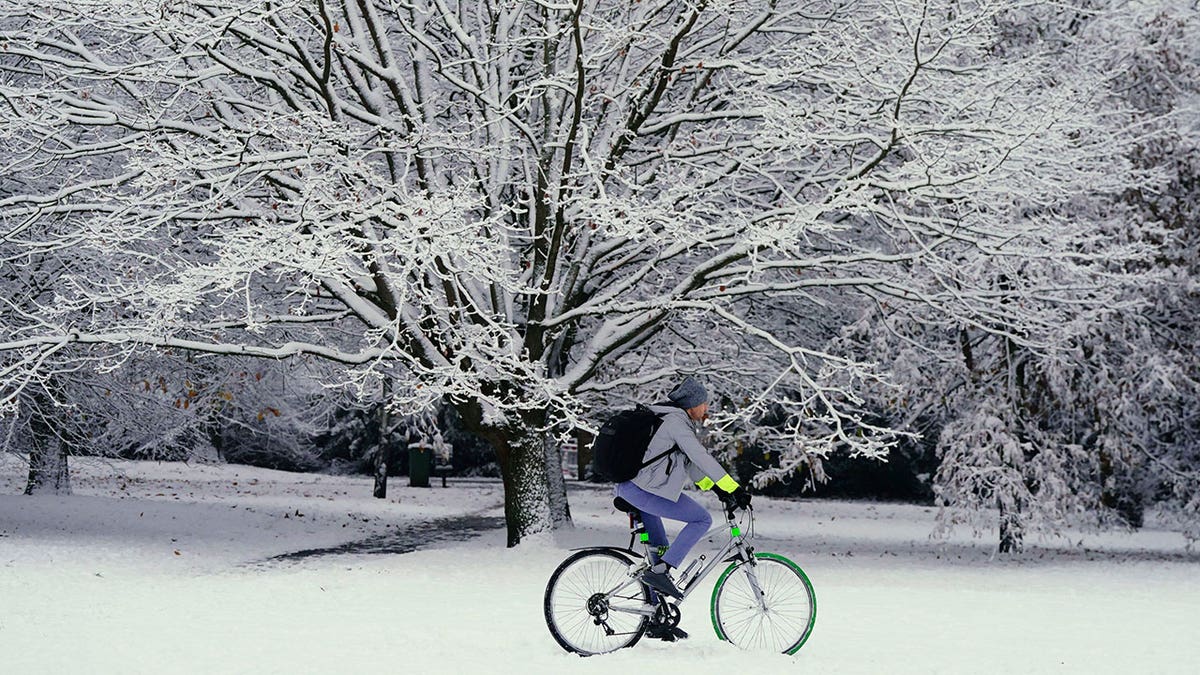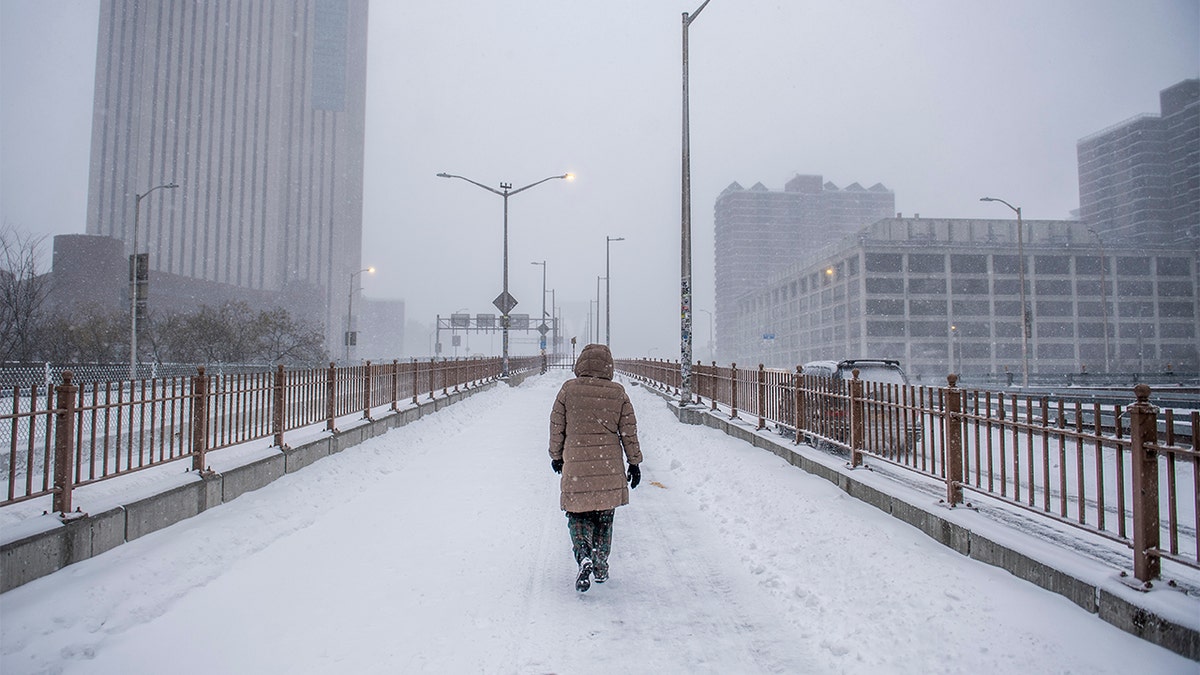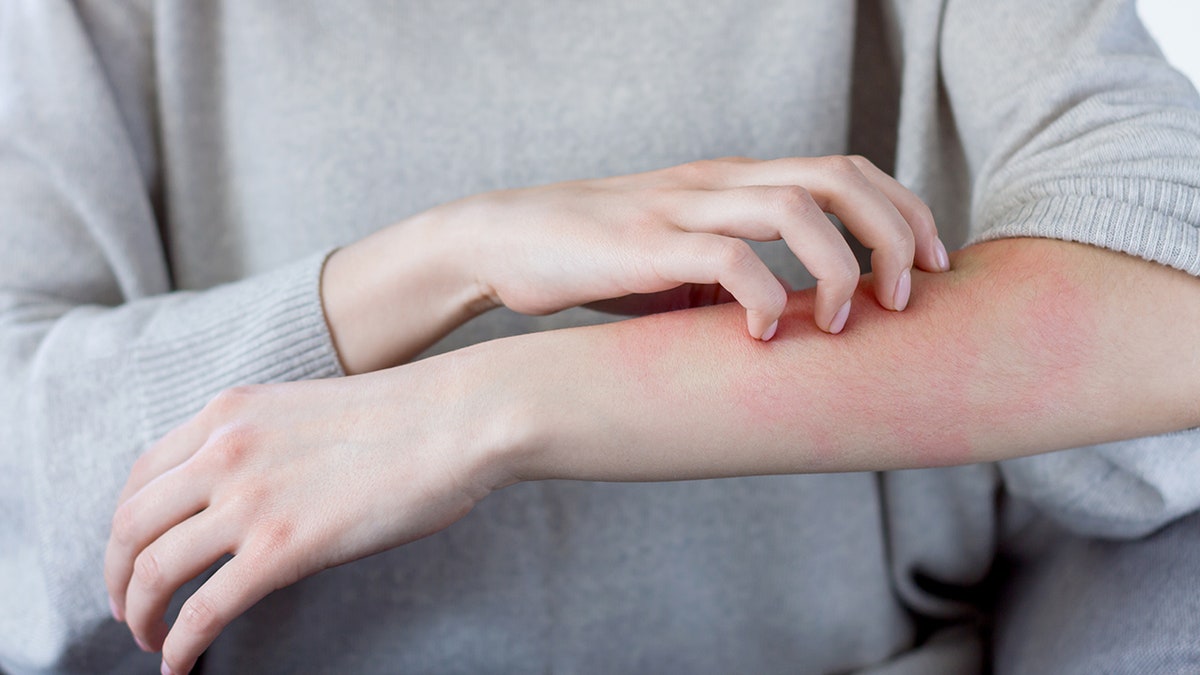As the weather transitions from warm to chilly to downright cold, you may notice that you feel a bit achier — and medical evidence suggests it’s more that it’s more than just a feeling of the winter blues.
Doctors shared insights into why and how the cold weather affects your body — and what you can do to lessen the aches and pains as we approach the winter season.
There is a common notion that weather influences chronic musculoskeletal pain, said Sarah Lee, M.D., an emergency medicine physician at the University of Maryland Medical Center – Midtown Campus in Baltimore City, Maryland, who also serves as an instructor at the University of Maryland School of Medicine.
SLEEP PROBLEMS WORSEN DURING THE WINTER, US ADULTS SAY IN NEW SURVEY
“Many people report colder weather seems to make body aches and joint pain flare up, especially those who suffer with arthritis,” Dr. Lee told Fox News Digital.
“Although medical research has been conducted on the topic, there is overall poor evidence to support a clear association between colder weather and musculoskeletal pain.”

A person cycles through the snow in London last Dec. “Many people report colder weather seems to make body aches and joint pain flare up, especially those who suffer with arthritis,” said one doctor. (Victoria Jones/PA via AP)
This is due to the difficulty in measuring pain, she said, given the subjective nature of severity, as well as the many variables of weather including temperature, humidity and atmospheric pressure.
There is a theory that when the barometric pressure drops in a cold winter, our tendons and muscles may expand in our confined joint spaces, which may lead to a flareup of joint pain, she said.
What’s actually causing the aches and pains?
Ryan A. Harrell, D.O., an orthopedic adult reconstruction surgeon at Novant Health Orthopedics & Sports Medicine in Supply, North Carolina, who specializes in joint conditions of the hip and knee, said that if you experience increased aches and pains during this time of the year, you are not alone.
“Cold and rainy weather have been associated with stiff, achy joints and pain,” he said.

“The constriction of blood vessels decreases blood flow to muscles and joints. This reduction in circulation may make your joints more prone to pain and stiffness” in the cold weather, said one expert. (iStock)
While research is still being done on the topic, here are some potential theories, according to Dr. Harrell, as to why cold weather may affect your joints and increase your pain.
Synovial fluid thickening. Synovial fluid is the lubrication in your joints much like as oil is the lubrication for your engine, Dr. Harrell explained. Its role is both lubrication and cushioning of the joint.
SHOULD YOU GET THE COVID AND FLU VACCINES AT THE SAME TIME?
“In colder temperatures, it is believed that the synovial fluid thickens and becomes less viscous. This leads to less cushioning and lubrication leading to stiffness and pain,” Dr. Harrell told Fox New Digital.
Constriction of blood vessels. Temperatures cause the constriction of blood vessels in an attempt to conserve body temperature.
“The constriction of blood vessels decreases blood flow to muscles and joints. This reduction in circulation may make your joints more prone to pain and stiffness,” he said.

A woman walks toward the Brooklyn Bridge near City Hall during a snow storm on Saturday, Jan. 29, 2022, in New York. (AP Photo/Brittainy Newman)
Decreased barometric pressure. There seems to be a link between decreased barometric pressure and achy joints — some people are more sensitive to changes in barometric pressure during cold and rainy weather, Dr. Harrell said.
“The decrease in barometric pressure leads to expansion of tissue, such as muscle and tendon — leading to increased pain in confined spaces such as joints,” he noted.
A decrease in activity seen during the winter months leads to decreased blood flow to the joints, as well as stiffness.
Increased nerve sensitivity. Those who suffer from achy joints or arthritis already have sensitive nerves. Worn out cartilage in arthritis exposes more of these sensitive nerves, he stated.
HIDDEN BELLY FAT COULD SIGNAL ALZHEIMER’S DISEASE RISK 15 YEARS BEFORE SYMPTOMS SHOW UP, STUDY FINDS
“Cold weather results in hypersensitivity of these nerves, leading to increased pain,” Dr. Harrell told Fox News Digital.
Higher humidity. Dr. Harrell said there seems to be a link to higher humidity, along with cold temperatures, as possibly being more harmful to bone and cartilage cells in your joint.

It’s easier to remember to drink water and stay hydrated when the weather is sunny and hot — but getting adequate water intake is just as important in winter. “Dehydration is associated with joints stiffening up and can make joint pain worse,” said one health expert. (iStock)
Inactivity. A decrease in activity seen during the winter months, said Harrell, leads to decreased blood flow to the joints as well as stiffness. This can lead to increased pain.
How to combat the winter aches and pains
Stick to healthy habits. In order to address these aches and pains, Dr. Lee with the University of Maryland Medical Center said it’s generally recommended that people continue healthy habits, including getting good sleep and eating a healthy diet.
Stay hydrated. Predictably, it’s easier to remember to drink water and stay hydrated when the weather is sunny and hot — but getting adequate water intake is just as important in winter.
BOOST BRAIN HEALTH AND SLOW MENTAL AGING WITH 10 INTRIGUING TIPS FROM LONGEVITY EXPERTS
“Dehydration is associated with joints stiffening up and can make joint pain worse,” she noted.
Keep active. Gentle exercise such as walking is recommended to stretch and loosen the joints.
“This also helps build bone strength over time and prevents chronic musculoskeletal pain,” said Dr. Lee.

No matter the weather, it’s generally recommended that people continue healthy habits, including getting regular exercise, getting a good night’s sleep and eating healthy foods, say experts. (iStock)
If aches and pains persist, she said over-the-counter medications such as ibuprofen (Motrin or Advil) may be helpful.
CLICK HERE TO SIGN UP FOR OUR HEALTH NEWSLETTER
Improve your mood. Dr. Harrell with Novant Health Orthopedics & Sports Medicine said emotional well-being has been linked to decreased pain, as has been shown after joint replacement surgery.
“Finding activities that improve your mood and make you happy during the cold winter months can help alleviate some of your pain.”
“Finding activities that improve your mood and make you happy during the cold winter months can help alleviate some of your pain,” he said.
CLICK HERE TO GET THE FOX NEWS APP
Stay warm. Keeping warm may combat some of the aggravating factors that cold temperatures play on joint pain, Dr. Harrell reported.
“This includes dressing in warm clothing and layering, electric blankets, heating pads, warm baths or showers — and increasing the heat in your car or home,” he said.
For more Health articles, visit www.foxnews.com/health.

